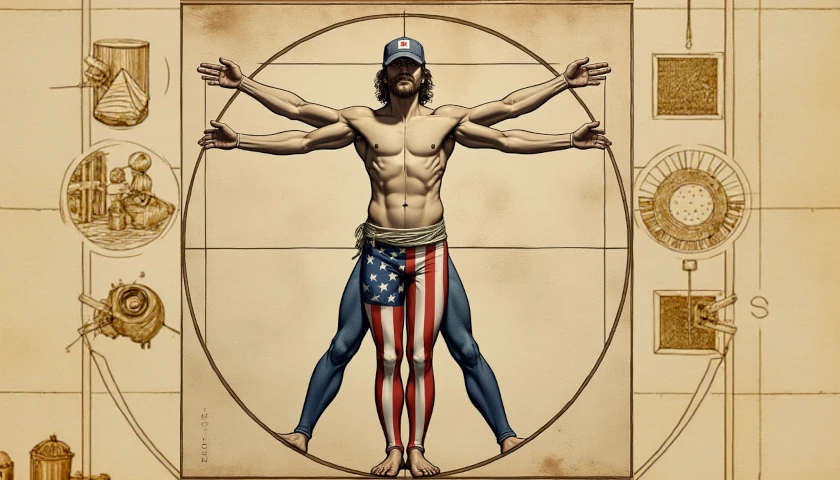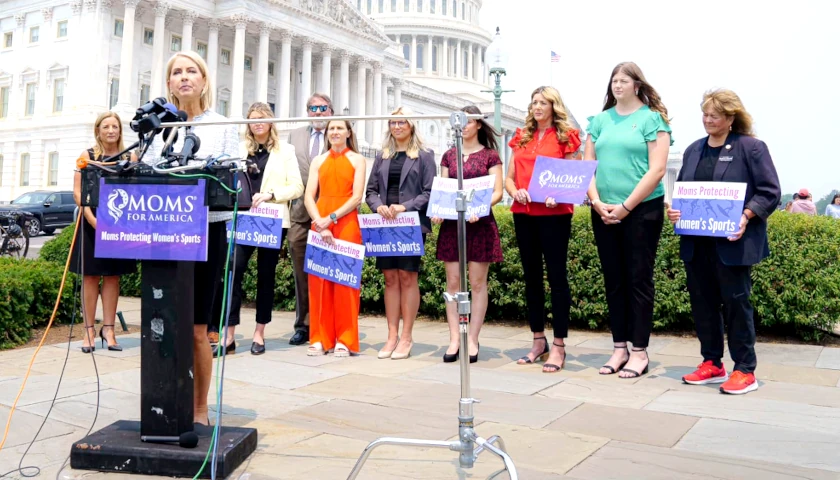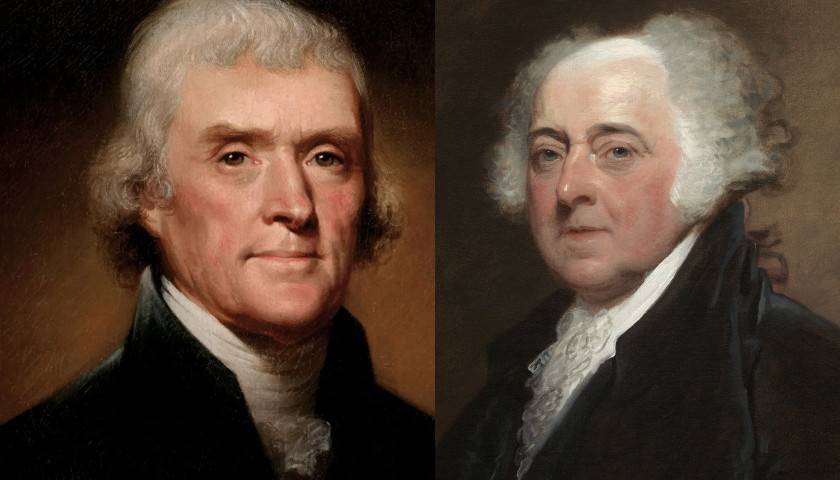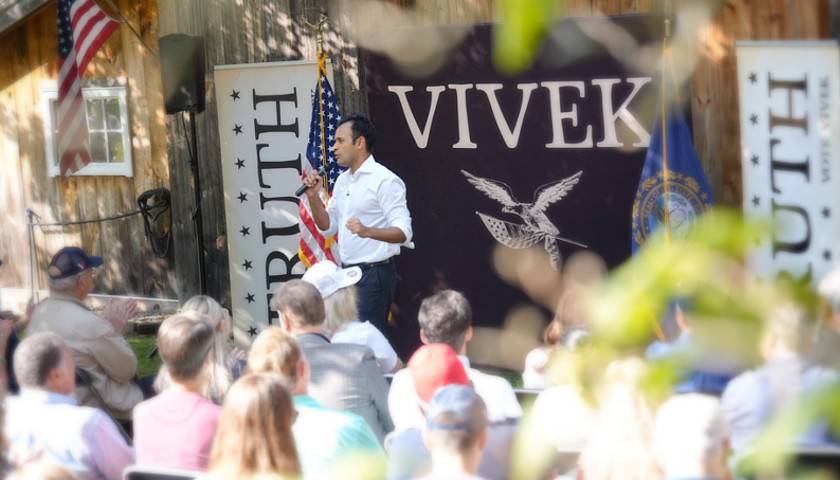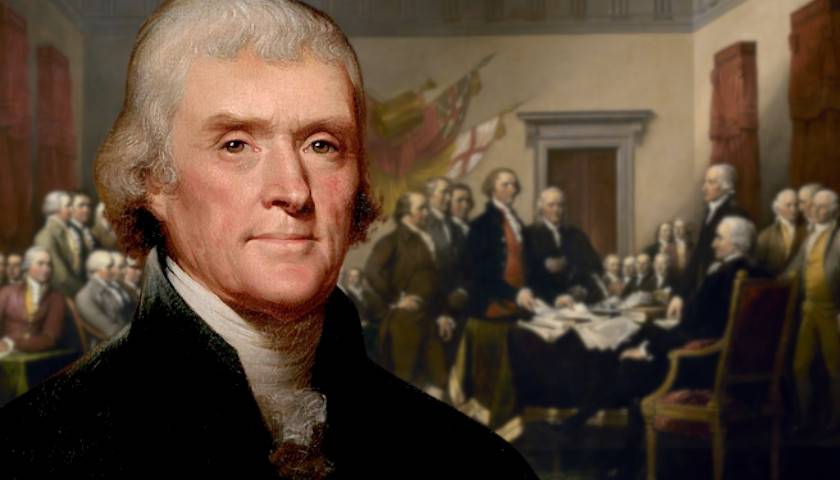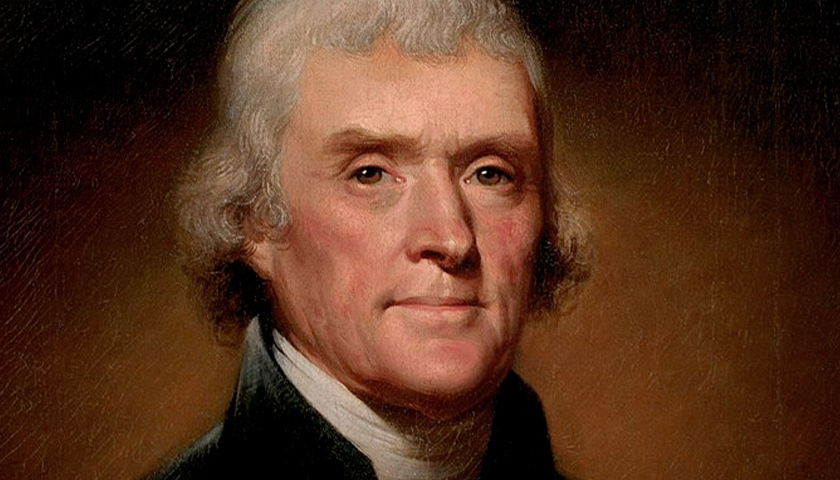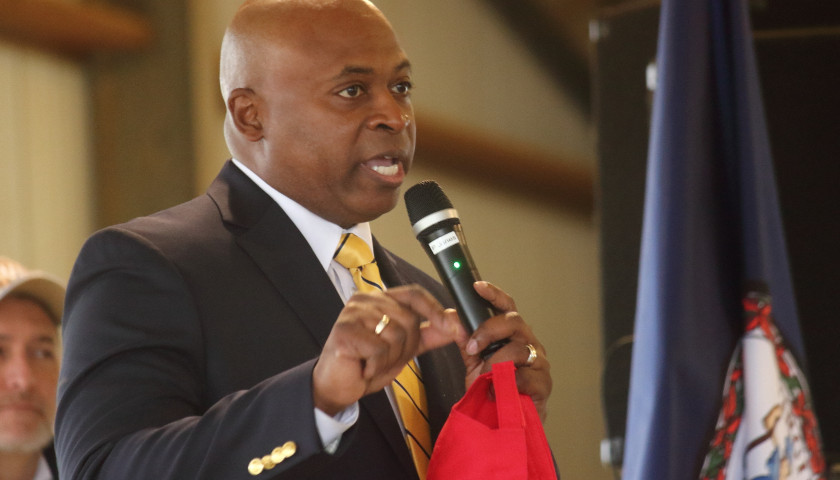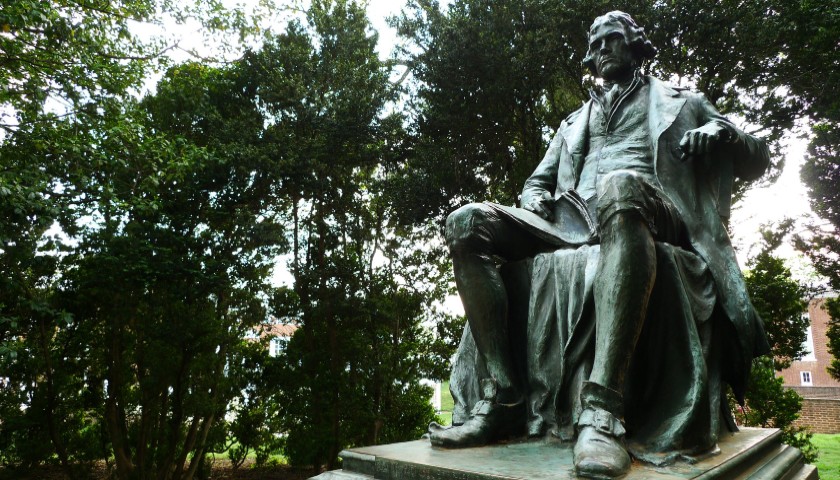The songwriter, actor, country/western singer, musician, U.S. Army veteran, helicopter pilot, accomplished rugby player and boxer, Rhodes scholar, Pomona College and University of Oxford degreed, and summa cum laude literature graduate, Kris Kristofferson, recently died at 88.
Read MoreTag: Thomas Jefferson
Commentary: Don’t Let the Department of Education Silence Our Kids
The Founding Fathers recognized that an educated citizenry was vital to the survival of our republic. Thomas Jefferson, for example, saw education as essential to giving every citizen the opportunity to participate meaningfully in a free society.
Writing in 1818, our third president described public education as “the means to give every citizen the information he needs for the transaction of his own business … to express and preserve his own ideas … to improve his morals and faculties … to understand his duties, and to exercise his rights.”
Read MoreCommentary: A Spark In the Minds of the People
What really happened in New York this past week in the prosecution of Donald Trump? The breathless paid script readers of the controlled “press” wanted to gloat and heap disdain on the former President. Their glee was only matched by the vapid analysis of how the verdict might impact the election this year. And a few of the quislings of the Republican In Name Only (RINO) persuasion began to daydream about a return to the Republican Party that played the role of shill to the state, supporting ever more wars of imperial design and furthering the “project” of globalization.
But of course all of these things are mere momentary delusions. In the scheme of things, the Soviet show trail in New York will have little impact on any of these things. It will, however, leave a lasting mark.
Read MoreCommentary: The Most Important Trait for Yale’s Next President Is Courage
On August 31, 2023, Yale’s 23rd president, Peter Salovey, announced he would be stepping down. Since this announcement, much has transpired in the world of American higher education: the resignation of Harvard and UPenn presidents, the creation of campus encampments nationwide, and the cancelation of commencements at Columbia and USC. These developments point to an American higher education system that is malfunctioning. The breakdown we are witnessing at Yale’s peer institutions will continue until leaders are chosen for their courage to apply wisdom to divisive issues.
America’s Founders understood the importance of higher education. Of all his great accomplishments, only three made it onto Thomas Jefferson’s headstone: Author of the Declaration of American Independence, of the Statue of Virginia for Religious Freedom, and the father of the University of Virginia. Jefferson knew that America’s ability to be great and good – UVA’s motto – depended on the presence of high-functioning universities. America’s first polymath, Ben Franklin, famously said, “An investment in knowledge pays the best interest.” Framers like Franklin and Jefferson understood the value of academic pursuits, and their example lit a spark that motivated generations of Americans to pursue higher education.
Read MoreRamaswamy on Vice Presidential Possibilities: ‘I Have No Plan B’
Ohio businessman and GOP presidential hopeful Vivek Ramaswamy may still be a relative “long shot” in a Donald Trump-dominated contest, but he insists he’s not running for No. 2.
In short, there is “no Plan B,” Ramaswamy says.
Read MoreCommentary: Thomas Jefferson’s Meaning of ‘The Pursuit of Happiness’
The idea of the “pursuit of happiness” is in our societal DNA. Yet, this “unalienable right,” immortalized in the Declaration of Independence, has often puzzled people. What exactly did Jefferson mean?
Most people think of happiness as feeling good, but that is not what Jefferson meant. Pleasure and happiness are not the same. Our happiness does not depend upon everything going right in our life or getting what we want.
Read MoreCommentary: The War on Thomas Jefferson
The final decision, after years of debate, was made on Oct. 8 to remove from the New York City Council chambers the statue of the man we all know to have been a dreaded slaveholder—to the tune of 600 over his lifetime—Thomas Jefferson.
Despite that, writing at Bari Weiss’s Substack, political science professor Samuel Goldman, with whom I concur, is less than happy.
“The removal is disgraceful. Unlike monuments to Confederate leaders that display them in full military glory, Jefferson is depicted as a writer. Holding a quill pen in one hand and the Declaration of Independence in the other, he is clearly being honored for composing an immortal argument for liberty and equality.”
Read MoreCongressional Candidate Leon Benjamin: It’s Pastor Time
Leon Benjamin is the senior pastor of New Life Harvest Church, former Richmond GOP Party Chairman, and a candidate for Virginia’s fourth Congressional district.
Read MoreUniversity of Virginia to Contextualize Monument to Founder Thomas Jefferson
University of Virginia President Jim Ryan announced that the school will contextualize a monument to its founder Thomas Jefferson. Ryan said the move is part of a broad effort to make the university both “great and good.”
Read More
